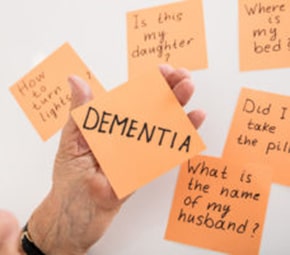There are many common misconceptions about dementia, Alzheimer’s, and memory loss. This lack of understanding can lead to stigmatizing those suffering from dementia or similar symptoms and can even impact proper care and diagnosis.
It is of vital importance that the world work towards a better understanding of dementia and what it can mean for you or your loved one. Here are a few interesting facts about dementia and clarification on a few common misconceptions.
- Dementia is not actually a disease itself. The word “dementia” is a term that is used to categorize a set of symptoms, including memory loss, changes in behavior, and cognitive decline. Some forms of dementia have symptoms that worsen with time, while others can be reversed if they are caught early on and promptly treated.
- Diagnosing dementia in its early stages can be challenging, but an early diagnosis can greatly improve your own or your loved one’s quality of life. Symptoms are often mild and go unnoticed. Some people actually experience symptoms for years before they are diagnosed. If you suspect that you or your loved one are displaying some of the common warning signs of dementia, visit a doctor for a possible dementia test.
- Although dementia is typically associated with the elderly, it actually affects all age groups. While seniors are the most commonly affected, it is possible for younger people to also have it. A study conducted by the Alzheimer’s Association estimates that there are approximately 200,000 people under the age of 65 with younger-onset Alzheimer’s.
- It is common to see Alzheimer’s disease and dementia used interchangeably to describe the same symptoms, but Alzheimer’s is actually one single form of dementia. There are many other types under the umbrella term of “dementia,” including frontotemporal dementia, vascular dementia, dementia with Lewy bodies, Huntington’s disease, and many others.
- There is still very little research and information available regarding dementia risk factors and treatments for the slowing or stopping of it. To better understand dementia, there must be increased funding for research and studies to help us learn more about the disease.
At Angels Senior Living, we strive to give those with dementia and memory loss a safe living environment in which they can live their happiest and healthiest life. For information on our memory care facilities and interesting facts about dementia, contact Angels Senior Living today.






